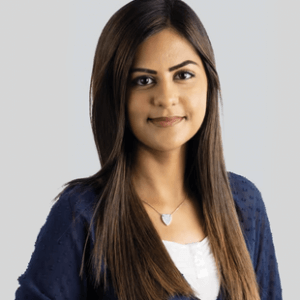This article is an extract from the latest Good Investment Review from 3D Investing and Good With Money, free to download here.
Investments can have a positive impact, but also a negative one.
In other words, every investment has an impact on the economy and therefore on society.
As a result, investments are, by definition, never neutral.
Using money to make more money simply does not add anything to society.
If the objective of an investment is not just to make a return, but to provide capital to help businesses and organisations grow, then the real value of the investment lies in how money is used and the impact that this has on the economy and our society.
But all too often, the focus is entirely on what may be expressed in terms of financial value. The primary question becomes: how much money can my money make? But this is of course untenable in the long term.
Using money to make more money simply does not add anything to society. If an investment is not productive, then any returns are simply a redistribution of wealth, often to the lucky winners from the losers who end up holding worthless financial papers.
At some point during the last fifty years the idea emerged that investing is mainly about financial value, increasingly removing investors from the objects they invest in. There are three important reasons for this.
First, we continue to see investment justifications that centre on a singular motive: an investment should generate more money, how that is achieved is irrelevant. This contributes to short-term thinking: anything that cannot be translated back into financial value soon is considered worthless.
Second, due to global integration it has become virtually impossible for the average investor to determine where and under what circumstances a company transforms raw materials into end products. Particularly in the tech sector where value chains are global, the clear link with the real economy has become much more obscure.
Finally, the increased use of artificial intelligence and robo-investing has brought into the mainstream the practice of trading purely on price signals: these investment decisions have nothing to do with the actual developments within specific companies in which shares are held.
The consequences of this type of investment decision-making is widespread. Climate change is a primary example. The long-term outlook on fossil fuels is highly risky and you would expect investors to quickly scale back these holdings in favour of sustainable alternatives. But this is happening a lot less than expected, as the risk isn’t priced into the current price of the asset.
Similarly, risks appear in the food industry, as maximising profits in the short-term through huge palm oil plantations or mega cattle farms risks longterm profitability by negative impact on biodiversity, the environment and animal welfare.
What can investors do?
The first place to start is to try to determine what you own as an investor. Many investors—particularly those holding index funds—may find this an enlightening exercise. Once you have determined the companies you are invested in, the next step is to assess the consequences of your investment.
If a company succeeds in its business model, what will be the long-term outcomes, and are you happy with that?
There is no such thing as a neutral investment— we all have a choice about how our money is creating the future. Over the past 25 years, Triodos IM, which has a Good Egg mark from Good With Money, has built up in-depth knowledge in key impact sectors like energy and climate, sustainable food and real estate, arts and culture, and inclusive finance. As an impact investor, it knows that finance is transformational, so it directs money to where it can benefit people and the environment over the long-term.
Through a strict selection process, Triodos IM determines which investment opportunities will realise positive change, combined with a long-term healthy financial return. Some of these companies include:
Gamesa, Spain, Triodos Sustainable Pioneer Fund
Siemens Gamesa Renewable Energy makes wind turbines and their components as well as operating wind farms worldwide. The company also makes components for large-scale solar farms and hydroelectric power plants. With its renewable energy products, the company contributes to the transition into a low-carbon economy and helps reduce the uncertainty of future energy supply.
Whitbread, United Kingdom – Triodos Sustainable Equity Fund
Whitbread operates Premier Inn hotels, Costa coffee shops and several restaurant chains. Their sustainability programme has reduced carbon emissions by over 30% and diverted more than 90% of waste from landfill. The company partners with the Rainforest Alliance, uses FSC certified timber, and sources RSPO certified palm oil and animal products from farms that respect the Five Freedoms.
Hain Celestial, United States – Triodos Sustainable Pioneer Fund
Hain Celestial manufactures and sells organic and natural, ‘better-for-you’ food and personal products. Through brands like Ella’s Kitchen and Yorkshire Provender, it aims to create and inspire a healthier way of life. The company supports organic farming to facilitate the long-term sustainability of agriculture. Triodos IM funds are available in the UK through Triodos Bank.
To find out more, visit www.triodos.co.uk





